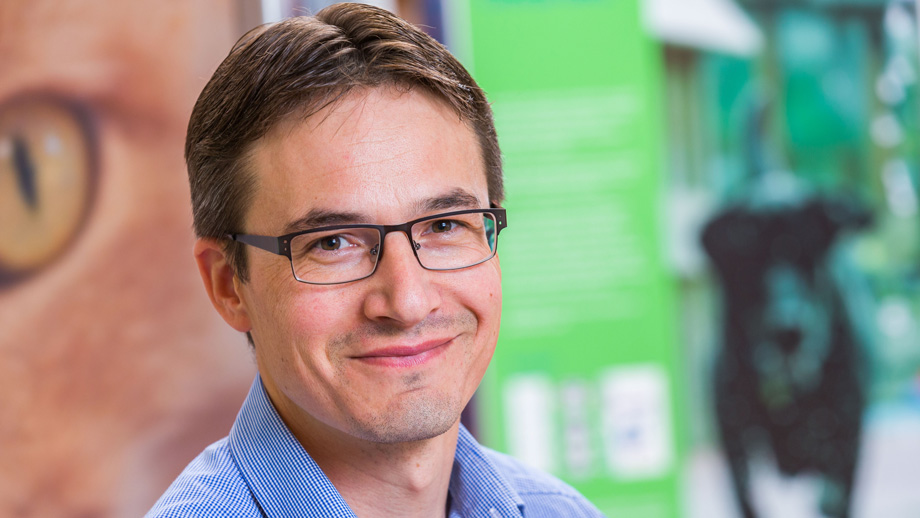Matt Gibbs
Explores a bitter world for pets
Our senses bring the world we live in to life. Sight, hearing, touch, smell and taste allow us to interact with the environment around us. They give us vital the information to keep us safe, such as the audible warning shout from a friend. But they also influence our feelings and actions, like the great tasting cake that we can’t resist.
It is important that our pets are keen to eat the complete and balanced food we give to them. This is so that they receive the correct nutrition for them every day. Part of understanding the motivation to eat a particular food involves exploring the fundamental sensory science of taste in dogs and cats. To contribute to this knowledge, Matt Gibbs is focussing his PhD research on bitter taste receptors in dogs.
Although now studying for a PhD in cell biology, Matt’s journey to this point has not been a traditional one. “I have always had an interest in understanding the activity of molecules in a cell (molecular biology) and how this can be applied to solve a problem in industry. My first role at Waltham was to introduce some new molecular techniques to the on-site laboratory. I had gained some of these skills in my previous job at the government owned Veterinary Laboratory Agency (VLA, now called the Animal Health and Veterinary Laboratory Agency). At the VLA, I was a technician for a project that developed DNA-based methods to detect Salmonella in chicken flocks. An important approach to help improve human food safety. Whilst I enjoyed this work, after a while I began to need new challenges.”

“I started to think about how I wanted to develop my career. The options available at the VLA didn’t appeal to me, so I began to look around. I hadn’t previously heard of Waltham, but their advert grabbed my attention. The vacancy, and the opportunities that working in such a large company bring, ticked the box in terms of the development I was looking for. When I visited for my interview, I was pleased to find out about the animal research ethics by which Mars stands as they were aligned to my own opinions. All this happened back in 2002. Since then, Mars has lived up to my expectations and I have indeed been able to learn and grow at work”.
“After 5 years, I changed roles and became a laboratory scientist at the pet centre. It was then that my interest in sensory science and taste receptors began. It is an important area for Waltham, as the fundamental science centre for Mars Petcare, to gain a better understanding of taste mechanisms in pets. After all, you can apply the best science to food, but if the dog or cat doesn’t want to eat it, that knowledge is wasted”.
“At the beginning of 2017, I started a Mars-sponsored PhD to investigate the bitter taste receptors in dogs at the University of Nottingham. The challenges for sensory scientists who work with animals are very different to those working with human taste. Clearly, animals cannot verbalise their experience with a flavour, so we need to find new ways to understand how they perceive taste and smell. At the simplest level, if two dogs reject a flavour it does not mean that they both perceive it in the same way. We only know the outcome was common.
My PhD is about trying to understand these differences using a molecular genetics based approach, focussed on bitter receptors in dogs. In humans, there is a family of 25 receptors that convey bitterness to us. Dogs have fewer bitter receptors, however, my early work suggests that mutations exist in these receptors as is the case for humans. This could mean that individual variation or even dog breed influences bitter taste perception.”





